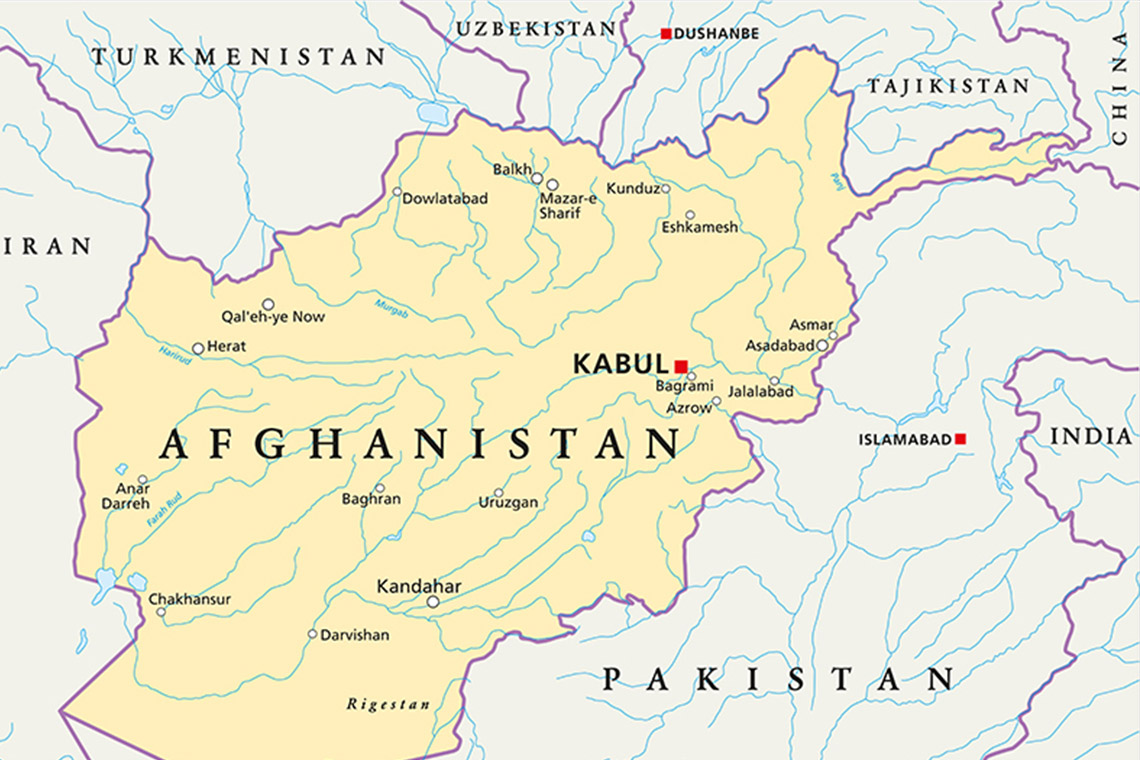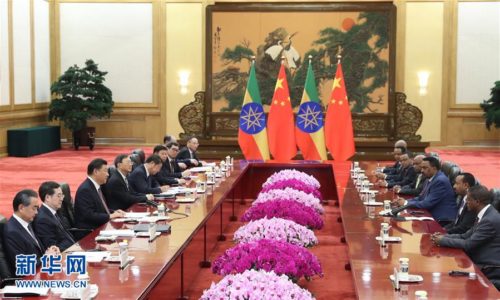The Taliban goes to Beijing
Top China news for March 9, 2017. Get this daily digest delivered to your inbox by signing up at supchina.com/subscribe.

Taliban political negotiators visit China
Pakistan’s Express Tribune reports that the five senior political negotiators from the Afghan Taliban visited China last month on the invitation of the Chinese government. The article quotes an unnamed Taliban source, who said, “Being a major world power, China is a main stakeholder and wants to play its vital role for peace and stability in Afghanistan.” Shortly after the visit, China’s special envoy for Afghanistan, Deng Xijun 邓锡军, visited Kabul and met senior Afghan leaders, including President Ashraf Ghani. Deng told Ghani that China has “encouraged the Taliban…to join the peace process,” and that China recognizes the Afghan government and sees talks as the only way forward. The Express Tribune comments that China has been trying to promote peace and stability in Afghanistan, “particularly in view of the vacuum that has emerged in the country and the region due to the failure of American policy.” In February, we noted reports of Chinese People’s Liberation Army troops patrolling in the Wakhan Corridor, the narrow strip of territory that connects China and Afghanistan.
Fetuses may enjoy certain rights under new civil law
The new civil code currently under consideration by the National People’s Congress may grant some rights to fetuses. The draft provisions of the new law “describe the fetus as being entitled to some civil rights in terms of inheritance or gifts.” China’s civil law does not currently recognize any rights before birth. Xinhua News Agency says that there is a “growing consensus among legal experts that the law should afford some…protection to an unborn child,” but there are limits, as “granting a fetus the right to life may impact on women’s rights.”
Women and China: A The China Project-sponsored forumSave the date: May 18 from noon to 7 p.m.
Join us at the China Institute in New York to discuss how women are shaping a rising superpower. More details are forthcoming.
A chronology of human rights violations of the United States in 2016
In response to the American State Department’s annual report on human rights around the globe, in which China features prominently, the Chinese government has released its annual response: a report titled Human Rights Record of the United States in 2016. Much of the focus is on gun violence, inequality, racial discrimination, and “money politics.” Accompanying the report is a chronology of rights violations.
When “no problem” means your problems have just begun
In 1990, two American women who had lived and traveled in China since the 1970s wrote a booklet called The Man With the Key Is Not Here, a semi-comic guide to what people really mean when they say certain stock phrases in Chinese. You can buy the booklet on Amazon or read it on China Heritage.
Two Sessions update: One Belt, One Road and war on poverty
State media continues blanket coverage of the Two Sessions — the annual meetings of the National People’s Congress and Chinese People’s Political Consultative Conference. Some of the topics most heavily featured are discussions about One Belt, One Road — President Xi Jinping’s signature initiative to redraw trade lines through Central Asia and Europe — and rhetoric about the “war on poverty.” Xinhua continues to promote its rap music video about the “six things close to Xi Jinping’s heart,” which The China Project translated yesterday.
Today on The China Project
In today’s Sinica Podcast, Kaiser and Jeremy interview Big Daddy Dough, high-flying financier by day, parody hip-hop artist by night. We also present a brief video history of panda diplomacy by Jia Guo.
This issue of the The China Project newsletter was produced by Sky Canaves, Lucas Niewenhuis, Jia Guo, and Jiayun Feng. More China stories worth your time are curated below, with the most important ones at the top of each section.
BUSINESS AND TECHNOLOGY:
- Didi beat Uber in China and now it’s opening an R&D center on its turf / The Verge
CNBC reports that China’s tech giants are investing billions into startups in the U.S. The country’s four-largest internet companies, Baidu, Alibaba, Tencent, and JD.com, have invested $5.6 billion in 48 American tech deals over the past years. The Verge reports that Didi Chuxing, the ride-hailing company that ate Uber alive in China, is planning an R&D center in Mountain View, California, to develop artificial intelligence and self-driving car technology. Didi said it was providing more than 20 million rides a day as of October 2016. - Investors begin to sour on Chinese health apps / Financial Times (paywall)
There are now more than 2,000 Chinese health-care apps that offer patients medical advice, appointment booking, and other services. Good Doctor, backed by the insurance group Ping An, claims to have 20 million active monthly users who receive up to 400,000 diagnoses in a day. WeDoctor, a service from Tencent, the company behind WeChat, focuses on referring patients to doctors and claims to have completed more than 100 million appointment bookings over the past two years, earning $175 million in revenue last year. But the Financial Times says that funding of China’s digital health industry is dropping, as investors are losing confidence “in the ability of these companies to turn a profit.”
- China’s online insurance industry gains momentum / TechNode
- Thieves are pickpocketing wallet apps in China / Tech in Asia
- No country comes even close to China in self-made female billionaires / Quartz
- Capital controls the talk of China parliamentarians / Financial Times (paywall)
- China plans stricter bank capital rules to contain risks / Bloomberg
- China February producer inflation accelerates to fastest since September 2008 / Reuters
POLITICS AND CURRENT AFFAIRS:
- China says more than 20,000 from Myanmar seek refuge across border / Reuters
Earlier this week, about 30 people died in a battle between ethnic Chinese fighters and Myanmar government security forces in Kokang, which borders China’s Yunnan Province. The Chinese government has called for calm and says that more than 20,000 people from Kokang have fled to China to escape the ongoing fighting. The South China Morning Post reports that a shell fired in the conflict landed about 100 meters across the border in China, injuring one person. - Duterte’s defense chief signals Scarborough Shoal is off-limits for Chinese rigs / SCMP
Philippine defense chief Delfin Lorenzana today said that President Rodrigo Duterte had drawn “a red line” on Chinese construction or reclamation of Scarborough Shoal, a disputed reef in the South China Sea that the Chinese call Huangyan Island (黄岩岛 huángyán dǎo). The news is the first sign of trouble after a dramatic warming of the relationship between China and the Philippines that began when Duterte took office in June 2016. In January this year, China and the Philippines announced cooperation programs worth $3.7 billion; in February, Duterte said he would ask China for help fighting pirates in his country’s coastal waters.
- Beijing’s Basic Law stand in oath saga ‘a crushing deadly blow’ – an official says the National People’s Congress interpretation of Hong Kong’s Basic Law that disqualified the two lawmakers was “very encouraging” and “a blow” to the pro-independence advocates / SCMP
- Zambia on track to host China’s next African railroad / Caixin
- China’s Gezhouba digs in for Pakistan dam / Caixin
- The long road to a simple Party style / China Media Project
- Online video games are the latest casualty of China’s war against Korean businesses / Quartz
SOCIETY AND CULTURE:
- Pandas will fix everything / New York Magazine
On the evening of February 8, 450 socialites, businesspeople, and politicians attended a “Black & White Panda Ball” to raise money to bring a couple of pandas to live in Central Park. The city’s power elite had gathered to find something cuddly and uncontroversial that could bring them together after “emerging bleary-eyed and anxious from the election season.” Though the ball met its goal of raising $500,000, the panda crusade led by Representative Carolyn Maloney still has a long way to go: Challenges ahead include providing suitable living conditions for the pandas and signing a lease deal with the Chinese government. Last month, Bao Bao, the National Zoo’s beloved star panda, was returned to China before his fourth birthday, as the terms of the standard panda loan agreement require.
If you like pandas, watch this brief video history of panda diplomacy produced by The China Project’s Jia Guo. - Traveler in Guilin physically attacked by her tour guide for not shopping / People’s Daily (in Chinese)
Chinese social media lit up on Wednesday with a video of a female tourist being verbally abused and physically attacked by a tour guide while sitting on a bus. The incident happened in Guilin, a popular tourist destination known for its dramatic landscape of limestone karst hills. According to the tourist, the dispute happened after she refused to step off the tour bus to visit a shop as the guide had requested. To attract tourists, many operators in China charge below-cost prices for tour group packages, and make their profits by forcing tourists to shop at stores that give them kickbacks.
- Why is China so…uncool? – despite its unquestionable economic power, China still lacks global influence in terms of pop culture and pop stars / Foreign Policy (paywall)
- Yangchuanosaurus to appear on Chinese dinosaur stamps / China Daily
- China to wire Great Wall for high-tech tourism / Caixin
- China’s desert warrior queen, defender of Dunhuang / China Daily
- TV program makes stars of China’s poetry aficionados / Caixin





